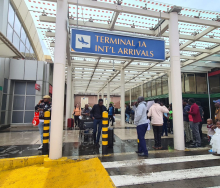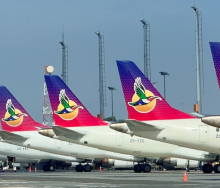THE UK Department of Transport is looking into protecting passengers against airline insolvency. The department has tabled a recommendation to introduce a levy of up to 50 pence (R9,37) as a Flight Protection Scheme. If introduced, it will finance the repatriation of British travellers if airlines go bust in future. The scheme would require every airline to come up with a form of insurance that, in the event it goes out of business, would pay the costs of bringing people home. It also recommends the creation of a legal route to allow defunct airlines to keep flying long enough to repatriate passengers. The review recommends appointing the UK Civil Aviation Authority as the co-ordinating body for the scheme, which is not yet in effect. Some airlines have suggested that, instead of a fresh levy, proceeds from Air Passenger Duty could be used.
Ceo of Asata, Otto De Vries, says he is encouraged to see the risks of airline insolvency being taken seriously. He says Asata members feel that Iata’s current agency programme is unbalanced, as all its risk management resolutions focus on travel agency failure, with no systems in place to protect customers from airline failure. Otto is part of an Iata taskforce reviewing the agency programme and says the subject forms part of the taskforce’s agenda. Otto says, while Asata backs the principle behind the UK’s Flight Protection Scheme, it is unclear if the same recommendations would work effectively in South Africa. “The UK travel industry is more regulated than in South Africa and has far greater volumes of travellers. While a protection scheme of only 50p may be a viable option there, this may not be the case locally.” UK passengers currently have the option of taking out travel insurance, which would
protect them against airline insolvency in the instance that the supplier they booked with has an Air Travel Organisers' Licensing (Atol) certificate. The Flight Protection Scheme would provide cover to passengers, irrespective of how, or from whom, the ticket was purchased or paid for. The Airline Insolvency review was set up in October 2017 after the British government had to pay £40,5m (R585 million) to repatriate 85 000 British holiday-makers stranded abroad after the collapse of Monarch Air. While the Association of British Travel Agents backed the recommendations, airlines have pushed back. Established carriers, with solid financials, have asked why they should increase costs to bail out passengers of less robust airlines. Airlines are also arguing that now, as other costs continue to rise, is not the time to make it more expensive to travel.
UK tackles airline insolvency risks
13 Jun 2019 - by Sarah Robertson
Comments | 0














